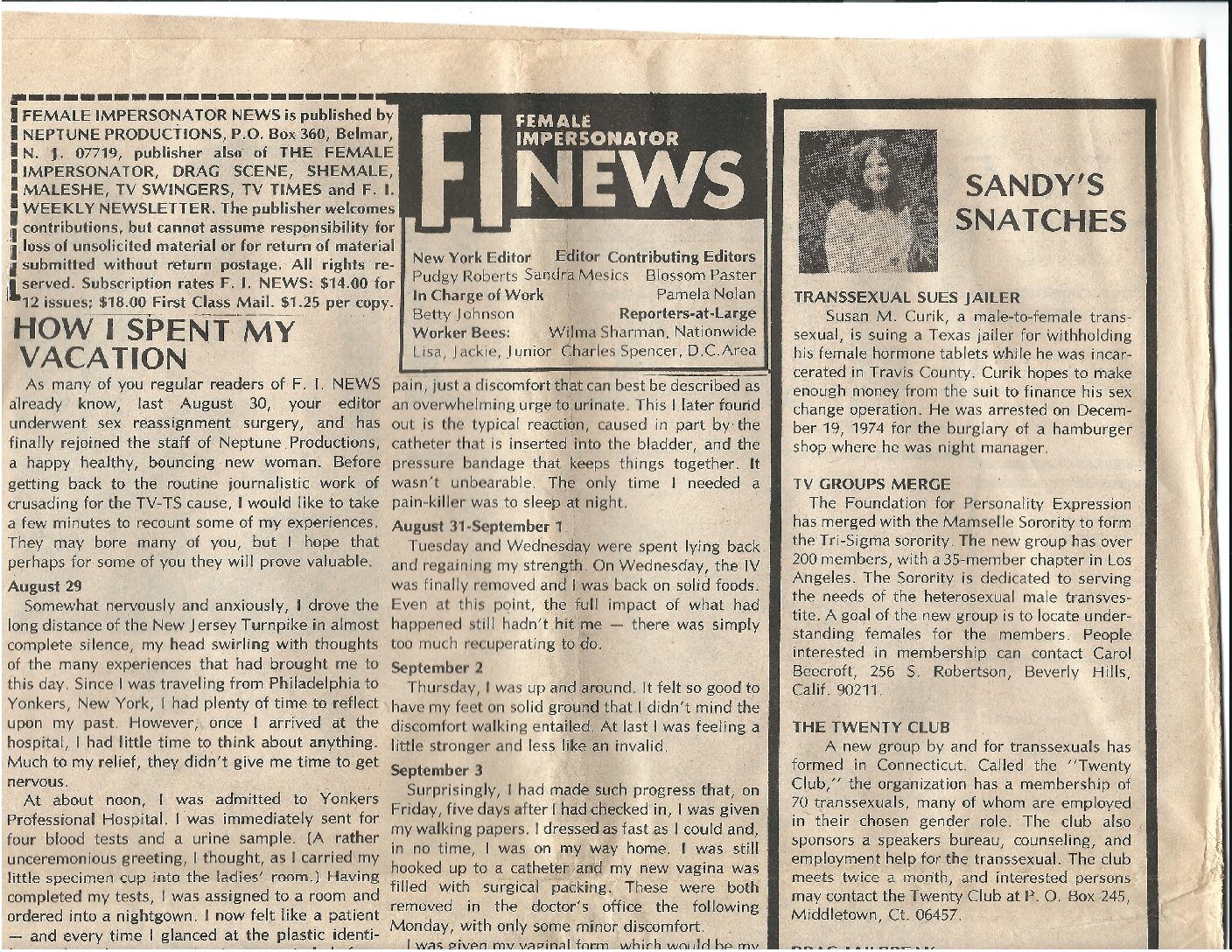In those pre-internet days, we relied on media to share information. I was a 24-year-old editor at Neptune Productions in 1976, the summer I had gender conformation surgery, and since there were so few first-person narratives of that experience, I was asked to write about my surgical experience. I was a bit reluctant at first, but the publisher really thought this would be helpful to our readers.
This was during the time that GCS mostly stopped being performed at large teaching centers like Johns Hopkins. The demand didn’t go down, so private surgeons moved in to meet the needs of folks like me. Those of us who were seeking out a surgeon did a lot of networking to find out who was good and who to avoid. This was pretty hard to do back in the 1970s, but we had quite a network…
My surgeon was Dr. David Wesser. He had an office on Park Avenue in Manhattan, and he did his GCS procedures at Yonkers Professional Hospital. He was one of the most compassionate, warm, and tender individuals I ever met. He had served with distinction as a front line surgeon with the Army Medical Corps in Vietnam. After his tour of duty was over, he established and ran a free surgical facility that treated Vietnamese children injured and maimed in that war. On his return to the States he was asked to correct surgical mistakes that others with less skill had inflicted the small but growing transgender population.
One of the reasons I chose Wesser was because he had some success at creating a sensate clitoris. Today, that’s a given, but in the 1970s, surgeons focused more on aesthetics and a functional vagina, and sensation was not much of a consideration. He took a view that it was quite important . . . me too!
In a future entry, I will talk more about how Wesser paid a price for his success in working with trans folks. But suffice it to say, he did well for me, and it’s not an exaggeration to say that he saved my life. I think I actually summed it up well in my article:
“In retrospect, I think the final surgical stage of sex reassignment wasn’t a gigantic step, nor should it be. . . . as a healthy human being, a person is always growing and changing. . . . There are a lot of new experiences in store for me — some of them good and some of them bad. There will be a lot of firsts. And I believe that, at least in my case, the sex reassignment surgery has not only changed me physically, but mentally as well. . . . For me, it was a resting point rather than the end of a long journey. Of course, you might say I reached my goal — but this is only one goal I have set for myself. . . . I feel that all the rest will be a little bit easier, and certainly more fulfilling.”
Sandy Mesics, FI News #15, 1976
